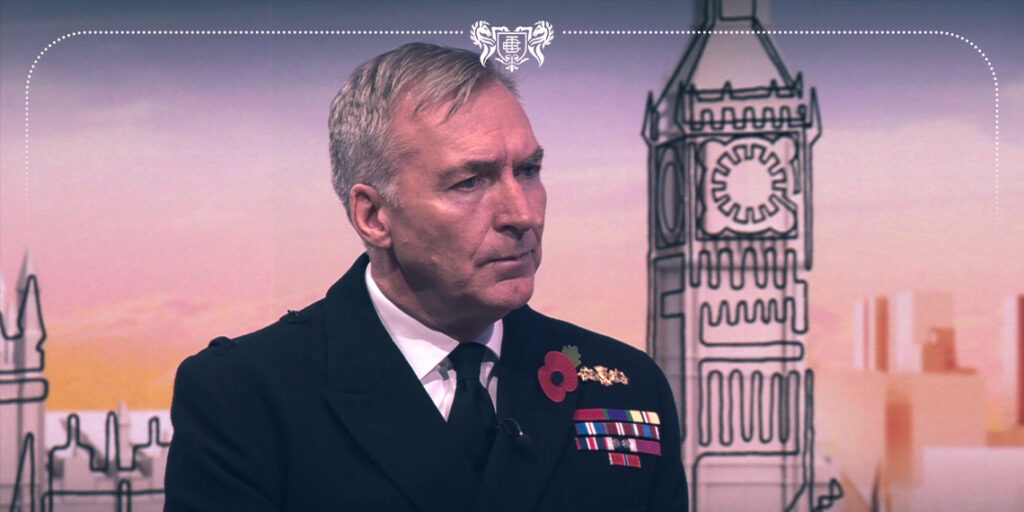In an interview with the BBC, Admiral Sir Tony Radakin, the UK’s Chief of Defence Staff, revealed that Russia experienced its highest monthly casualties in October since the invasion of Ukraine began in early 2022.
According to Sir Tony, Russian forces suffered approximately 1,500 casualties daily throughout October, with both the dead and wounded adding up to an estimated total nearing 700,000 since the onset of the war.
Despite Moscow’s refusal to publish official casualty figures, Western defence sources confirmed that October has been Russia’s deadliest month in terms of losses.
In an appearance on BBC’s Sunday with Laura Kuenssberg, Sir Tony underscored the human cost borne by the Russian people due to President Vladimir Putin’s prolonged military campaign, describing the toll as “extraordinary.”
He stated, “Russia is on the verge of reaching a devastating milestone of 700,000 killed or wounded. It’s a shocking level of suffering for the Russian nation driven by Putin’s ambitions.”
The UK defence chief noted that Russia’s gains in Ukraine have been minor and tactical, resulting in vast casualties for limited territorial control.
Despite these incremental advances, Sir Tony pointed out that Moscow’s financial commitment to the war has also reached unprecedented levels, with over 40% of Russia’s public spending now allocated to defence and security—“an enormous drain” on the nation’s resources.
In Washington, debates surrounding potential resolutions to the conflict have heated up following Donald Trump’s recent presidential election win.
Trump’s allies, some of whom suggest that Ukrainian President Volodymyr Zelensky may need to consider territorial concessions, have implied that ending the war is paramount.
Yet Sir Tony maintained that Western allies are firmly committed to supporting Ukraine “for as long as it takes,” stressing that this unified front serves as both a warning to Putin and reassurance to Zelensky.
The president-elect, while consistently advocating for an end to the war, has yet to clarify his approach, with advisers offering mixed perspectives on Ukraine’s future.
Earlier this week, Putin congratulated Trump on his victory, calling the new leader’s proposal to help end the conflict “worth considering.”
However, Trump’s critics argue that any concession to Russia would undermine Ukraine’s sovereignty and stability across Europe. Democratic opponents warn that Trump’s stance on Ukraine could signal appeasement, potentially jeopardising regional security.
Bryan Lanza, a former adviser from Trump’s campaigns, indicated that the incoming administration might pivot toward seeking a peaceful resolution, rather than backing Ukraine’s full territorial restoration.
However, a spokesperson for Trump later distanced the president-elect from Lanza’s statements, clarifying that Lanza was not speaking on behalf of the administration.
Zelensky, meanwhile, has reiterated his stance, presenting a “victory plan” to the Ukrainian parliament last month that firmly rejects any territorial concessions.
The Kremlin responded dismissively, with a spokesperson urging Kyiv to “sober up.”
As international pressures mount, the potential paths to peace remain complex and fraught with tension, with Putin’s ambitions colliding with Ukraine’s steadfast refusal to surrender any part of its territory.


